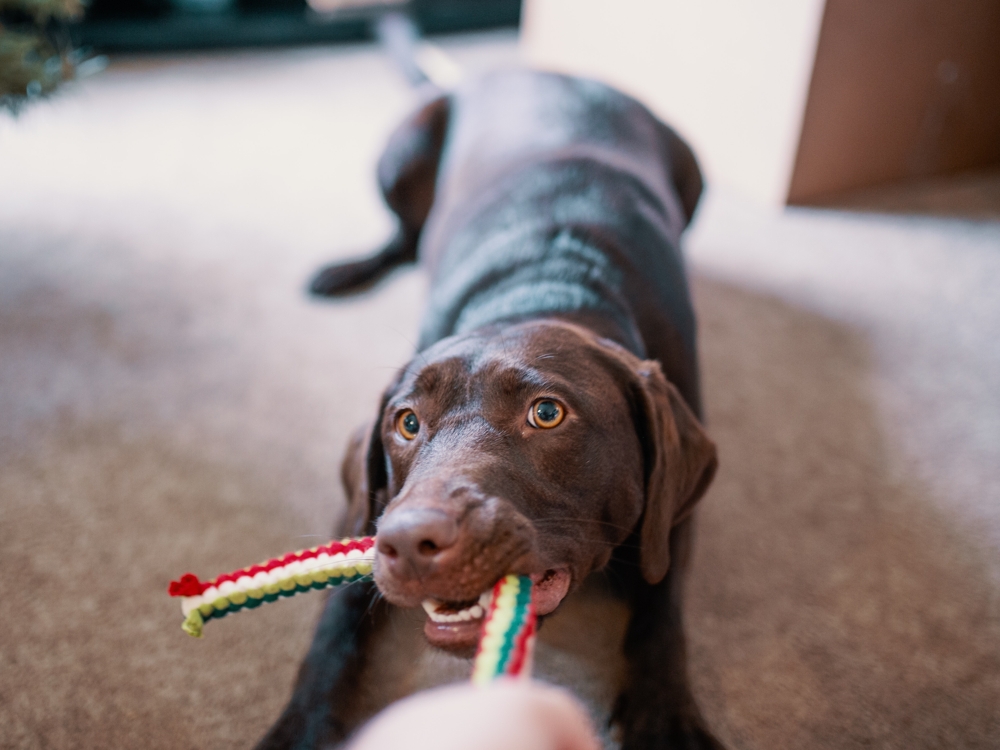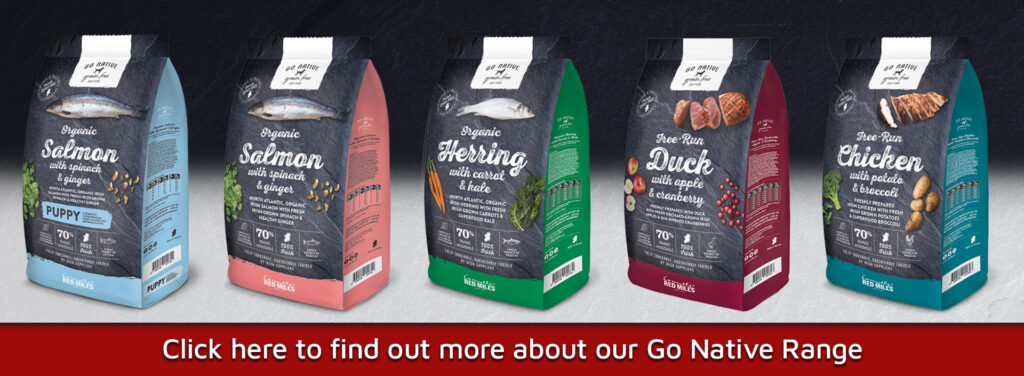Does Grain Free Food Cause Heart Problems in Dogs?
Share
[Sassy_Social_Share]We all want the best for our pets, especially their food. Every pet parent wants to give their fur baby the most nutritious and safest diet available. That is what is behind the demand for grain-free dog foods. Dog owners do not want to give their pets food that is mostly cheap filler ingredients with little or no nutritional value, and many foods out there include an excess of maize and other grains. Some dogs are intolerant of some grains. But now dog owners are hearing reports of grain-free dog food causing heart problems, even leading to death in some cases.

The news is terrifying, of course, and confusing. Why do some dogs seem to thrive on a diet that causes fatal heart problems in others? Why does grain-free dog food cause heart disease?
As much as we would all love a simple answer, there is not one. Research is ongoing, but what we know so far is that some dogs on grain-free diets have died young of heart problems. What went wrong? Does grain-free dog food cause heart problems in dogs? Why?
What Heart Problems Are Linked to Grain-Free Dog Food?
As grain-free dog food became more popular in the United States of America, vets there noticed something strange. They were seeing an increasing number of young, otherwise healthy dogs suffering from Canine Dilated Cardiomyopathy (DCM). The disease is not new, but previously it was seen almost only in breeds known to be prone to it, such as Boxers, Doberman Pinschers, Cocker Spaniels and Great Danes. Why were other dogs getting it now?
First, let’s take a quick look at what DCM is. The heart has four chambers: two smaller upper chambers and two larger lower chambers. The upper chambers are the atriums. The lower chambers are the ventricles. Each ventricle has its own job. First, blood enters the right ventricle where it is passed along at a low pressure to the lungs. (The right ventricle has a thinner wall than the left.) The freshly oxygenated blood travels to the left atrium and then to the left ventricle, which pumps it out via the aorta to circulate throughout the body.
DCM is a condition where the heart’s ability to pump blood is compromised. The heart muscles are weakened, and the ventricles are dilated as the ventricle walls become thinner. It can affect just one ventricle or all four chambers of the heart. Blood can pool in the lungs, causing coughing, panting and even abdominal swelling. The disease can also result in weakness and lethargy due to a lack of oxygen in the blood. Weight loss can be a symptom.
When DCM began showing up in breeds not prone to it, vets in the USA quickly noticed that their unexpected heart patients had one thing in common – they ate boutique brand grain-free dog food. The US Food and Drug Administration launched a study to learn if grain-free dog food was causing Canine Dilated Cardiomyopathy
Why Does Grain-Free Dog Food Cause Heart Disease?
The big question is why does grain-free dog food cause heart disease. It is worth also asking which grain-free dog foods cause DCM and why. While we don’t have a complete answer yet, studies are yielding some clues. Dogs do not need wheat or corn or rice to survive, but they do need the right balance of nutrients.
The United States Food and Drug Administration did a large review of instances of dogs dying of DCM and their diets. Two key things stuck out, and these clues can help dog owners make the best decision about what food to choose for their individual dog.
- Most of these dogs ate dry, grain-free food produced by smaller “boutique” brands that featured peas and/ or lentils. A smaller number of the dogs on grain-free diets ate foods that included potato and/ or sweet potato.
- Golden Retrievers and Labrador Retrievers were the breeds most reported, although a wide range of breeds and mixed breed dogs also died of DCM and were included. No breed is immune, but some might be at greater risk.
Dog owners can protect their pets by learning how to read a pet food label. Peas, lentils, potatoes and sweet potatoes are generally safe for dogs. While the jury is still out on exactly what the link is between these tragic pet deaths and grain-free dog food, what we know so far suggests the problem is likely to be the balance of nutrients in some boutique brands of grain-free dog food.
A 2018 study at the University of California Davis looked at 24 Golden Retrievers suffering from DCM linked to a lack of the amino acid taurine and 52 healthy Golden Retrievers. The dogs in the study with DCM had been fed a variety of 13 different foods between them; 12 of these were grain-free. The good news from the study is that many of the dogs with DCM improved after taking taurine supplements.
Is Grain-Free Dog Food Safe?
When it comes to choosing a safe, wholesome food for your pets, the company’s track record matters. It is important to know that the food you select for your beloved dog has been developed by qualified, experienced nutritionists and veterinarians. When pet owners began expressing interest in grain-free dog food, a number of small new brand sprung up. From the studies done so far, these small brands appear to be producing the foods linked to DCM.
The food you choose must be appropriate for your dog. A grain-free dog food is a good choice for a dog who doesn’t tolerate grains well and has no risk factors such as being a breed predisposed to DCM or having a heart condition. In general, it is not usually the best choice for a Boxer or Cocker Spaniel with a heart problem. But a dog who suffers from skin problems linked to grain intolerance can thrive on a high-quality grain-free dog food made with the right balance of wholesome ingredients.
The best source of advice about the ideal diet for your unique dog is your vet. Your own vet who already knows your dog and is an expert about dog health is the person who can help you assess your dog’s individual nutritional needs based on age, size, breed, activity level and overall health. No single food is right for every dog. If your dog is one that would thrive on grain-free foods, our team at Connolly’s Red Mills is confident that our Go Native line has the right blend of nutrients to provide a healthy and safe diet.






